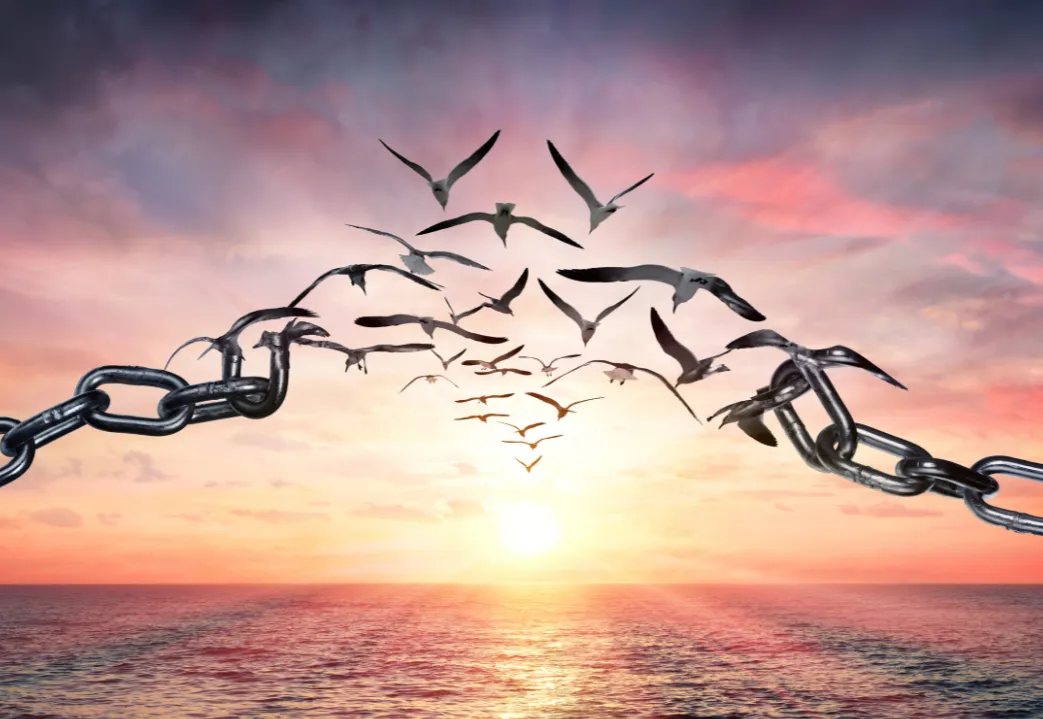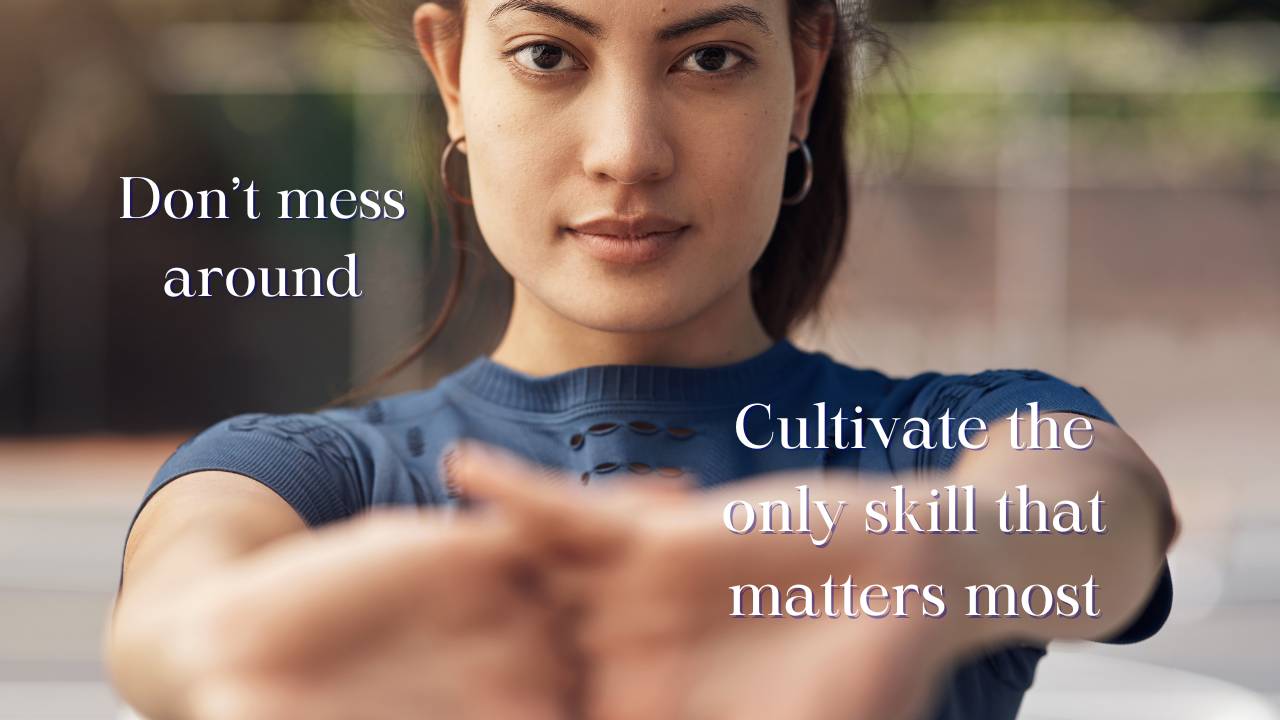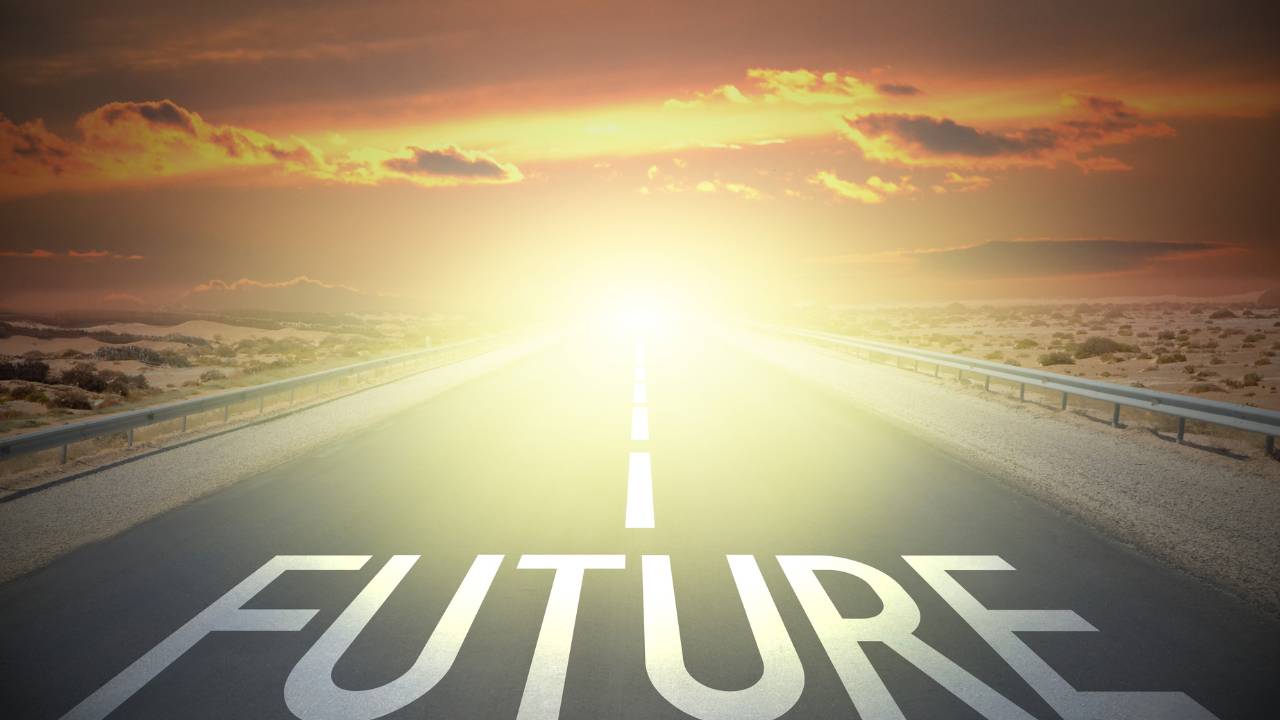
The Living Hell (of Hot and Cold Depression)
Oct 29, 2024
While recovering from surgery I took a detour back into Living Hell.
(For those of you who tend toward depression, you might want to listen up.)
I promise, I didn’t want to be the guy that serves as an example of how to be happy even if, aside from, and especially because bad stuff happens.
Most of our hardest life lessons come from stuff we didn't ask for. I would much rather not have endured life-threatening depression that got me kicked out of college, ruined my athletic career, and almost killed my chances on many occasions to really thrive in this life. I also would much rather not have had that one moment where I decided to speed by my friends on the ski slope, only to end up with a traumatic brain injury and internal damages that would haunt me for more than half of my life - 23 years and counting.
And, I often wish I didn’t need - because of my own personal hardships - to become an expert at helping people rewire their brains and overcome the hardest stuff th
...
While recovering from surgery I took a detour back into Living Hell.
(For those of you who tend toward depression, you might want to listen up.)
I promise, I didn’t want to be the guy that serves as an example of how to be happy even if, aside from, and especially because bad stuff happens.
Most of our hardest life lessons come from stuff we didn't ask for. I would much rather not have endured life-threatening depression that got me kicked out of college, ruined my athletic career, and almost killed my chances on many occasions to really thrive in this life. I also would much rather not have had that one moment where I decided to speed by my friends on the ski slope, only to end up with a traumatic brain injury and internal damages that would haunt me for more than half of my life - 23 years and counting.
And, I often wish I didn’t need - because of my own personal hardships - to become an expert at helping people rewire their brains and overcome the hardest stuff they’ve ever faced, while somehow coming out better than ever and somehow, someway grateful for it all. I wish I didn’t need to become that expert because I wish I didn’t first have to do it for myself and I wish I didn’t have to keep living my best life on purpose every single day, even if, aside from and especially because of chronic pain, headaches, nausea, fatigue, disequilibrium, hyper-sensitivity and more.

The Survival Mode being "on" too much, too often, for too long is the root of all suffering and disease.
Survival Mode is the "default" we are all born with, but we can upgrade to "Thriving Mode" if we know how.
Take the Surviving to Thriving Online CourseDon’t get me wrong, I am not saying there aren’t a lot of people who have had it a lot harder than me. There are. But, still, like anyone probably would, I wish I didn’t have to feel good about my son Finn learning a valuable life lesson, saying to a friend recently, “Well, my Dad chooses to be happy even though he’s almost always in pain.” Or, that my 6 year old daughter didn't have to know to her brother, “You are not your thoughts and feelings, you are what you choose no matter what you think or feel!”
Wishing things were or weren’t this way are thoughts and feelings I can dis-identify with as I pivot towards my values and comparison is a type of conceit that, for better or worse, cripples us all. The point is not to compare or compete, trading wound stories like baseball cards. The point is to inspire and learn from each other, and discover that together, we thrive.
It's all well and good to be able to learn from our mistakes, but it's a lot easier to learn from others’ mistakes, so listen up!
So, even after decades of being an expert, I want you to know that numerous times in the last few months, I’ve dipped back into the Living Hell of depression.
Thankfully, I didn’t stay there long, because it is obviously quite a miserable place to be. As I read somewhere along the way, “If you are in hell, don’t stop there!” Certainly, words to live by that are sometimes easier said than done.
I am grateful that, a few weeks ago, my wife skillfully left a book my mentor wrote so that I would read it and wake up, and I am so grateful to have a mentor in the first place who can remind me that pain is inevitable, but suffering is optional.

I want to share some of the lucidity from this book that helped wake from my stupor, because it might resonate with you the way it did with me. It struck me so hard between the eyes that I wrote to my teacher, “Lar, did you somehow get a tape recorder of the thoughts in my head yesterday, and put them in a book you wrote 30 years ago!”
For the skeptics in my audience, I know you are my people. But I also know that skepticism is a sign of intelligence right up to the point where it's a sign of stupidity. This book is a description of the “6 Realms” of suffering that have been elucidated by “Eastern” wisdom masters for millenia. I’m all for solid, evidence-based science, and as skeptical as you are about organized religion and new-age spiritual nonsense. But there is more wisdom in the authentic annals of these wisdom masters' thumbnails than there is in 99% of science altogether. So, let’s not mistake intelligence for wisdom and perhaps we can agree it is best to go for both and open our hearts and minds to relevant “ancient wisdom” even if it can’t be seen under a microscope.
Without further adieu: below my bio card, are the most impactful direct quotes that helped from “Opening The Heart of Compassion: Transform Suffering Through Buddhist Psychology and Practice” by Martin Lowenthal and Lar Short. All quotes are from the chapter about hot (anger based) and cold (apathy based) depression. AKA, "the hot and cold 'hells'" us humans tend to visit from time to time and hopefully not more than that.

Michael Boyle LMFT, CDBT
Speaker, Author, Therapist, Coach
- Licensed Marriage and Family Therapist in New Mexico & Massachusetts
- Certified in Dialectical Behavioral Therapy
- HeartMath Clinical Certification for Stress, Anxiety, and Emotional Regulation
- Certified in Eriksonian Clinical Hypnosis
- Trauma specialist trained in EMDR, somatic therapy, EFT, CBT, NLP
- Advanced studies in yoga, Ayurveda, breathwork, meditation, optimal performance, biohacking, and just about everything you can imagine about healing and thriving.
- Authorized to share the relevant work of Dr. Joe Dispenza and Grace Essence Mandala.
- Founder of the ALL Together Academy, author of the Creative-IAM, Facilitator of "The Future Now" Mastermind, "The Relating Renaissance" and Energy of Mind: Secular Spiritual Work for Practical People.

Victim Stance
“Every self-image (ego identification) is a contraction of our natural dynamic qualities… In the hell realm, we identify ourselves as victims. Our thoughts are filled with pain, blame, righteousness, and aggression.”
“When we are trapped in this realm, we operate from a sense of being trapped in a hostile world. We 'know' that something is terribly wrong. Something (else always) needs to be fixed, saved, or liberated. Existence is problematic.”
“Our life history is a tale of wounds and pain that we have suffered again and again. ‘Not again’ is our theme, sometimes said pleadingly, sometimes defiantly.”
“Pain is our proof of reality. If we experience pain, then an injury must be real. We contract further, creating more pain, thereby reinforcing our sense of being wounded again and again. If this pattern persists, the wound becomes the center or organizing principle of our life. Then comes the (never-ending) search for a solution, the ‘quest.’”
“This quest for a solution to the problem actually becomes a further problem.” (For the “scientific” equivalent read about Why Lots of Therapy Doesn’t Work here).
“Even if it was not deliberately created to destroy me, that is what it (life) does. I simply try to mind my own business, and everything is pulling, pushing, and beating on me.”
Anger, Inner and Outer
“Anger is projected over time. Anger can be directed inward at the self, which is too weak to maintain its identity. Or it can be directed outward at an unfair universe that lacks compassion and destroys what we are identified with. Often it is aimed in both directions. This is the root of hell, resisting the flow of the universe and feeling utterly separate from it. Then we feel too weary to stand against that flow, which is breaking us down, or we feel outraged because it seems to be destroying who we think we are.”
“We also develop a posture of aggression toward the pain, ourselves, and whatever we project as the cause of the pain. We want to scratch violently at the wound as if to tear it away and to strike out at the world where wounds can occur.”
“Either the world is responsible for our problems, or we are. We feel like victims of a painfully unfair life. We move from one form of self-hatred to another - from guilt (feeling that we are to blame), to shame (feeling that we are not good enough), to weakness (feeling that we are victims).”
“In this realm, we assert, ‘Life is unfair and nobody deserves my situation. It is wrong.’ The life questions in this realm are: ‘How can I make myself safe from the unfair pain of life? and ‘How can I prove to the world that I do not deserve to be hurt?’ The filters of perception are: ‘How are others in life failing me and how do I fail myself by my own terrible shortcomings?’”
“No matter how good our social image, our physical self-image, and our professional self-image are, they never seem quite good enough. We could always be better, and circumstances are always changing. We judge ourselves like an irascible God who sees our failures and criticizes our successes.”
Addiction to Control
“We chose this as children to secure ourselves in the world. We would rather feel guilty because we caused the death of a parent than admit that we had no control over it. We fear helplessness because we feel that, if something happened to us once, it could happen to us again. But if we are responsible for events, even the death of a parent, then at least we have the power to avoid pain in the future. We sacrifice our basic goodness to our need for control and power. We develop an addiction to control rather than an openness to flow. We keep trying to obtain the power to control events.”
“We treat ourselves as if we had power that we never really had. It is important to realize, however, that if we did have the power at the time, we would have changed the event. We did not cause nor subconsciously choose the abusive and painful events of our lives. Again and again, the world was and is beyond our control.” (This sober message flies in the face of what we sometimes get from condescending new-agers, check out the distinction in my article, “This is What’s BullSh*! About the Law of Attraction.”)
“Life does not consult us. Everything else shows up in our life, and this is what is on our plate. We can only work with whatever is there - this is the plan… The irony for us as control addicts is that we are trying to be responsible for things that we cannot control, and we do not take responsibility for the things we can.”
Trapped
“Being caught in hell is further confirmation of how bad we are… all this results in loneliness, a lack of real connection. So we fall into depression, or we generate conflict in order to feel real and connected again. In the hell realm, life is a constant struggle, an apparently never-ending fight to exist and to be okay. For some, this means swinging between intense hatred and aggression and a dull, exhausted resignation to the pain of existence, while still wishing for escape.”
A Glimmer of Insight
“What if there's no answer to the problem of Our Lives because there is no problem? What if the problem is invented, is only a projection? Suppose we are walking around in the world afraid of snakes (that are actually sticks). As we journey through snake country at dusk every long thin shadow triggers our snake 'radar' and places us on alert. In fact, our fear and caution would make us run or strike out, rather than examine the evidence. This type of misperception creates a body response, in which the reality of the body's reaction overwhelms whatever is actually occurring at the time. The reaction becomes a reality unto itself.” (I go into these mechanics and implications in depth in “The Origin of ALL Disease and Suffering.”)
*read below to find the way out of this hot (or cold) mess!

Take the Surviving to Thriving Pathway
Thanks for being a premium blog member. If you want to go a bit further in this work, check out the Surviving to Thriving Pathway, for 10, 10-minute videos with written summaries delivered to your email that will give you the foundation you need to heal and thrive.
The Way Out
“We need to examine the nature of pain. What makes it so painful, aside from the fact that it hurts? What is the difference between pain and suffering? How does pain become suffering? Blood clots, and then stops flowing. Similarly, pain congeals into suffering. We prevent it from passing with our fear, hope, expectation, frustration, anxiety, blame, guilt, and shame. We become extra sensitive, thinking that every sensation might be the beginning of more pain, thereby painfully bracing ourselves against the pain that might happen. We split ourselves between our desire for control and our ignorance of what is coming. We try to be prepared, ‘pre-tensing’ to the point that we cannot move. Each, ‘what if,’ ‘why’, ‘how bad can it get’, and ‘you did this to me’ keeps the pain from fading into the past. We extend the pain as suffering.”
“By identifying with the role of the victim and relating to life as a problem, we betray life in many ways. Part of us knows how to be alive in the moment, but we betray that part by putting all our attention on our story, our reconstruction of our life history. Our identity does not allow us to relate to the present as it really is. We stubbornly see ourselves as a victim, again, rather than as the author of our experience, now.”
“When not in the exhausted phase of the realm, we can marshal enormous energy by pursuing our point of view and telling our story. but there is also the potential here for reflection, if only we would create a pause from the chaos of our feelings and the tyranny of our righteousness.”
“ We need to face our addiction to feelings such as shame, anger, and guilt. We need to deal with the ways in which we use pain to feel real. Attachment to the drama of the emotions needs to be confronted and penetrated before we can relax into the flow of life as it is.”
“The ‘real cause’ can never be determined. We are the way we are only partly because of our parents, who were somewhat the products of their parents, who grew up with their parents, and so on. Other factors may include the beliefs we formed from anomalous experiences, the influences of long-gone friends and acquaintances, and not getting enough sleep last night. It is much easier to stop the suffering now by interrupting the patterns than it is to find a real cause. We can take charge of now; we cannot do anything about the past. We can use our experience as the beginning of wisdom rather than as a continuation of ignorance.”
Flow
“The continuous flow of energy and changing phenomena is part of what defines aliveness. Being awake and open to the freshness of each moment, feeling the energy of flowing with the course of events like a surfer riding a wave, and sensing the indestructible quality of awareness that encompasses all events and phenomena and reflects them all without being affected - these are the qualities that are obscured by our addiction to control, hostility, and righteousness. But we can confront the reality of life honestly and without contrivance, making our very awareness of our present condition the path to our freedom. Acknowledging our weaknesses and our limited ability to affect events can be an important source of strength. This fosters honesty and forgiveness.”
Forgiveness
“The difference between being a jailer and being a convict is simply which side of the bars we are on. When we desire vengeance (against ourselves, against others, against the world, or against God - all the supposed causes of our pain), we are on both sides. When ‘parts of us’ are punishing other ‘parts of us’, our internal resources are fragmented. This reinforces the helplessness of our despair. Forgiveness releases both the convict and the jailer and heals the fragmentation.”
Gratitude
“Eventually this gives rise to gratitude, and an advanced form of forgiveness. With gratitude, the heart opens and spiritual life begins. Without gratitude, there is no spiritual development, only empty gestures. When we have heartfelt gratitude for the miracle of our existence, the gift of life, then we have enough, and everything else becomes an extra gift. Then we can appreciate and marvel at the Wonder of life. Through forgiveness, gratitude, appreciation, and the sense of being enough, the flow of life becomes an opportunity rather than a threat.”
Patience
“The process by which we grow spiritually involves surrendering to the flow, allowing the universal to operate through us, and integrating that into our being. Within the flow of change, there is something that can be relied on. hen we realize this, a serene, peaceful patience develops.”
“The sense of flow, of immediate sensations, and of undistracted openness can be felt when skillfully shooting the rapids in a kayak, effortlessly skiing down a steep slope, or passionately making love. When we become the activity, feeling connected to each moment, to each event, we are no longer alienated from life. In that instant, we are not waiting for something else to happen. Our longing for love as a way out of separateness is dissolved in our belonging to the present. With no waiting, and no holding back, we open to activity and change. We meet whatever life presents and dance with it.”
“Unperturbable awareness is not a passive solid state; it meets each new situation with intense, active interest in a way that cannot be distracted or disturbed. ‘Who and What We Are’ is a journey of discovery into each new moment. This awareness in turn gives rise to mirror-like wisdom. Our Essence nature is mirror-like, reflecting all yet remaining the same no matter what is reflected.”
“These realizations free us from our habitual preoccupations (hell and the other 5 realms) so that we have nothing to prove, nothing to fear, and nothing to hide. We no longer need to hide ourselves from the world or hide the world from ourselves. By operating unattached to and freed from our agendas of vanity and insecurity, we no longer obscure the nature of grace, the gift of life as it is. We flow with the process of becoming and living. We host experience in life situations with interest, involvement, and gratitude.”
In conclusion, by living life in this way - via undistracted Awareness dancing with the living moment, not by controlling or predicting outcomes, can we “have it ALL” - Awareness Loving Life.
Together, we thrive!
Check out our YouTube channel: @ATAtherapytools
Featured
Premium Articles










